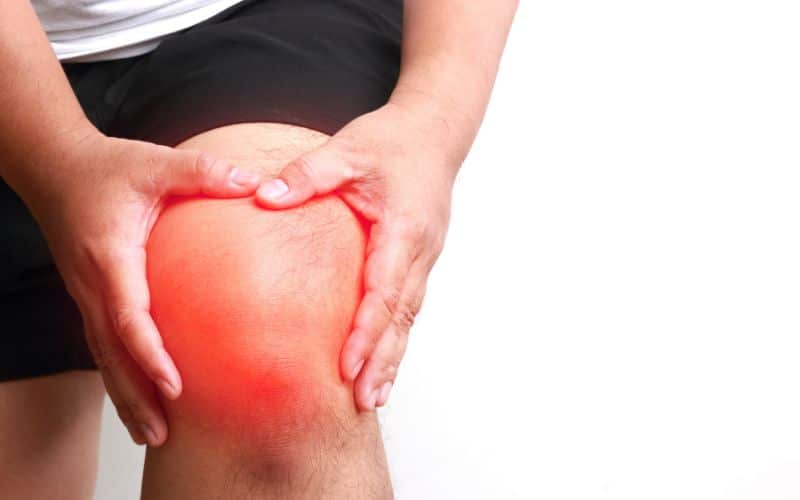As men age, they may find it more challenging to maintain a healthy weight. This can be due to a variety of factors, including a decrease in metabolism, a decrease in physical activity, and changes in hormones. However, maintaining a healthy weight is crucial for overall health and can help prevent a variety of chronic diseases.
Weight loss can be a sensitive topic, and it can be challenging to know where to start. However, it's essential to approach weight loss in a healthy and sustainable way. Crash diets or extreme exercise regimens can be harmful to the body, especially for older adults. Instead, focus on making small, gradual changes to your diet and exercise routine that you can maintain over time. Additionally, it's essential to consult with a healthcare professional before starting any weight loss program to ensure that it's safe and appropriate for your individual needs.
Contents
Understanding Weight Loss in Elderly Men
Weight loss is a common issue among elderly men. While some weight loss is normal as we age, it can also be a sign of underlying health issues. Unintentional weight loss, which is defined as a 5% or more reduction in body weight within six to twelve months, is particularly concerning and should be evaluated by a doctor [1].
There are several factors that can contribute to weight loss in elderly men. These include:
- Reduced muscle mass: As we age, we tend to lose muscle mass. This can lead to a decrease in metabolism, making it harder to burn calories and maintain a healthy weight [2].
- Changes in hormones: Hormonal changes can also contribute to weight gain or loss. For example, a decrease in testosterone levels can lead to a decrease in muscle mass and an increase in body fat [3].
- Medications: Certain medications can cause weight loss as a side effect. If you are taking medication and experiencing weight loss, it's important to talk to your doctor about possible alternatives [1].
- Illness or disease: Weight loss can be a symptom of many different illnesses and diseases, including cancer, dementia, and gastrointestinal disorders [4].
If you are experiencing unintentional weight loss, it's important to see a doctor to determine the underlying cause. In some cases, addressing the underlying issue can help reverse the weight loss. In other cases, your doctor may recommend dietary changes or other interventions to help you maintain a healthy weight.
In addition to addressing any underlying health issues, there are several things you can do to maintain a healthy weight as you age. These include:
- Eating a healthy, balanced diet: Focus on eating plenty of fruits, vegetables, whole grains, and lean protein. Avoid processed foods and foods high in sugar and saturated fat [5].
- Staying active: Regular exercise can help you maintain muscle mass and burn calories. Aim for at least 30 minutes of moderate exercise most days of the week [6].
- Getting enough sleep: Sleep plays an important role in weight regulation. Aim for 7-9 hours of sleep per night [7].
By understanding the factors that can contribute to weight loss in elderly men and taking steps to maintain a healthy weight, you can improve your overall health and well-being.
[1] Mayo Clinic Q and A: Weight loss in older adults can signal underlying health issue. (n.d.). Retrieved from https://newsnetwork.mayoclinic.org/discussion/mayo-clinic-q-and-a-weight-loss-in-older-adults-can-signal-underlying-health-issue/
[2] Losing Weight As You Age: What's Normal and What's Not. (n.d.). Retrieved from https://www.webmd.com/healthy-aging/is-it-normal-to-lose-weight-as-you-age
[3] Belly fat in men: Why weight loss matters. (n.d.). Retrieved from https://www.mayoclinic.org/healthy-lifestyle/mens-health/in-depth/belly-fat/art-20045685
[4] Unintentional Weight Loss in Older Adults. (2014, May 1). Retrieved from https://www.aafp.org/afp/2014/0501/p718.html
[5] Keeping your weight stable in older age. (n.d.). Retrieved from https://www.health.harvard.edu/staying-healthy/keeping-your-weight-stable-in-older-age
[6] Exercise and Physical Activity. (n.d.). Retrieved from https://www.nia.nih.gov/health/exercise-physical-activity
[7] Sleep and Aging. (n.d.). Retrieved from https://www.sleepfoundation.org/older-adults
Importance of Healthy Weight for Elderly Men
Maintaining a healthy weight is crucial for elderly men as it can significantly impact their overall health and quality of life. Being overweight or underweight can increase the risk of developing various health problems, such as heart disease, diabetes, and osteoporosis.
Risks of Being Overweight

Carrying excess weight can put a strain on the heart and increase the risk of developing heart disease, high blood pressure, and stroke. It can also lead to joint problems, such as osteoarthritis, and increase the risk of falls and fractures. Additionally, being overweight can contribute to sleep apnea, a condition that causes breathing problems during sleep.
Risks of Being Underweight
Being underweight can also have negative effects on an elderly man's health. It can increase the risk of malnutrition, which can lead to a weakened immune system, muscle weakness, and fatigue. Underweight men may also have a higher risk of developing osteoporosis, a condition that weakens bones and increases the risk of fractures.
Healthy Weight Range
The healthy weight range for elderly men is generally determined by their body mass index (BMI). According to the World Health Organization, a BMI between 18.5 and 24.9 is considered healthy for adults. However, for elderly men, a BMI between 24 and 29 may be more appropriate as it can help protect against age-related weight loss and muscle loss.
Achieving a Healthy Weight
Achieving and maintaining a healthy weight can be challenging for elderly men. However, making small lifestyle changes can make a big difference. Eating a healthy, balanced diet that is rich in nutrients and low in calories can help with weight loss. Additionally, engaging in regular physical activity, such as walking, swimming, or yoga, can help build muscle mass and improve overall health.
In summary, maintaining a healthy weight is crucial for elderly men to reduce the risk of developing various health problems. Being overweight or underweight can have negative effects on their health and quality of life. By making small lifestyle changes, such as eating a healthy diet and engaging in regular physical activity, elderly men can achieve and maintain a healthy weight.
Common Challenges in Weight Loss for Elderly Men
Losing weight can be challenging for anyone, but it can be particularly difficult for elderly men. As we age, our bodies undergo changes that can make weight loss more challenging. In this section, we will explore some of the most common challenges that elderly men face when trying to lose weight.
Physical Challenges
One of the biggest physical challenges that elderly men face when trying to lose weight is a loss of muscle mass. As we age, we naturally lose muscle mass, which can slow down our metabolism and make it harder to burn calories. This means that elderly men may need to work harder to maintain their muscle mass through resistance training and other forms of exercise.
Another physical challenge that elderly men may face is chronic pain or mobility issues. These conditions can make it difficult to engage in physical activity, which can make weight loss more challenging. In these cases, it may be necessary to work with a physical therapist or other healthcare professional to develop an exercise plan that is safe and effective.
Emotional Challenges
Losing weight can also be emotionally challenging for elderly men. Many elderly men may struggle with feelings of depression, loneliness, or boredom, which can lead to overeating or other unhealthy habits. It is important to address these emotional challenges as part of a comprehensive weight loss plan.
Dietary Challenges
Finally, elderly men may face dietary challenges when trying to lose weight. As we age, our bodies may become less efficient at absorbing certain nutrients, which can make it harder to maintain a healthy diet. Additionally, elderly men may have unique dietary needs based on their health conditions or medications.
To overcome these challenges, it is important to work with a healthcare professional or registered dietician to develop a healthy eating plan that meets your specific needs. This may involve incorporating more nutrient-dense foods into your diet, or making adjustments to your medication regimen to support healthy weight loss.
Overall, weight loss can be challenging for elderly men, but it is not impossible. By understanding the unique challenges that elderly men face, and working with healthcare professionals to develop a comprehensive weight loss plan, it is possible to achieve and maintain a healthy weight at any age.
Safe Weight Loss Strategies for Elderly Men
When it comes to losing weight, it's important to do it safely and in a way that won't harm your health. This is especially true for elderly men, who may have different nutritional needs and physical limitations than younger individuals. Here are some safe weight loss strategies for elderly men to consider.
Balanced Diet

A balanced diet is essential for weight loss and overall health. This means eating a variety of nutrient-dense foods, including fruits, vegetables, whole grains, lean proteins, and healthy fats. It's also important to limit processed foods, sugary drinks, and saturated and trans fats.
One way to ensure a balanced diet is to follow the MyPlate guidelines, which recommend filling half your plate with fruits and vegetables, one-quarter with whole grains, and one-quarter with lean proteins. You can also consult with a registered dietitian to develop a personalized meal plan that meets your individual needs.
Regular Exercise
Regular exercise is crucial for weight loss and maintaining muscle mass. It can also improve cardiovascular health, balance, and flexibility. Elderly men should aim for at least 150 minutes of moderate-intensity aerobic activity per week, as well as strength training exercises that target major muscle groups.
Some examples of moderate-intensity aerobic activities include brisk walking, cycling, swimming, and dancing. Strength training exercises can be done with weights, resistance bands, or bodyweight exercises like push-ups and squats. It's important to consult with a healthcare provider before starting a new exercise program.
Adequate Hydration
Staying hydrated is important for weight loss and overall health. Elderly men should aim to drink at least 8 cups of water per day, or more if they are physically active or live in a hot climate. Other sources of hydration include herbal tea, low-sugar fruit juice, and broths.
It's important to note that some medications can increase the risk of dehydration, so it's important to speak with a healthcare provider about any potential risks or concerns.
Routine Check-ups
Regular check-ups with a healthcare provider are important for monitoring weight loss progress and identifying any potential health concerns. This includes routine blood work to check for any nutrient deficiencies or other health issues.
It's also important to speak with a healthcare provider before starting any new weight loss program, especially if you have any underlying health conditions or take medications that may interact with certain supplements or dietary changes.
By following these safe weight loss strategies, elderly men can achieve their weight loss goals while also maintaining their health and well-being.
Role of Family and Caregivers in Weight Loss Journey

The support of family and caregivers is essential in the weight loss journey of an elderly man. They can provide emotional, practical, and social support, which can help the elderly man stay motivated and on track with his weight loss goals.
Emotional support involves being a shoulder to lean on when the elderly man is feeling discouraged. It can also involve providing encouragement and praise for his progress. Caregivers can help the elderly man stay positive by reminding him of his goals and how far he has come.
Practical support can be provided by helping the elderly man with tasks that may be difficult for him due to his age or health condition. For example, caregivers can watch the elderly man's grandchildren while he exercises or help him prepare healthy meals.
Social support is also important in the weight loss journey. Caregivers can help the elderly man find social activities that involve physical activity, such as walking groups or senior fitness classes. They can also help the elderly man connect with others who are also trying to lose weight, which can provide a sense of community and accountability.
It's important for caregivers to be aware of the unique challenges that elderly men may face in their weight loss journey. For example, elderly men may have a harder time losing weight due to changes in their metabolism and muscle mass. Caregivers can help the elderly man by providing healthy meal options and encouraging him to engage in physical activity that is appropriate for his age and health condition.
In summary, the support of family and caregivers is crucial in the weight loss journey of an elderly man. Emotional, practical, and social support can help the elderly man stay motivated and on track with his weight loss goals. Caregivers should be aware of the unique challenges that elderly men may face and provide support that is appropriate for their age and health condition.
Success Stories of Weight Loss in Elderly Men
Weight loss can be a challenging journey for anyone, but it can be especially difficult for elderly men. However, there are many success stories of elderly men who have lost weight and improved their health. Here are a few examples:
John Kealy
John Kealy is a prime example of how it's never too late to start taking care of your health. At the age of 50, he decided to make some changes to his lifestyle and lost 50 pounds. He did this by making small, sustainable changes to his diet and exercise routine. He cut back on processed foods, ate more fruits and vegetables, and started walking regularly. Today, at the age of 65, he has kept the weight off and is in better health than ever before.
Dr. Robert Huizenga
Dr. Robert Huizenga is a medical doctor who specializes in weight loss and has helped many elderly men lose weight. He encourages his patients to focus on making healthy lifestyle changes rather than just trying to lose weight quickly. One of his patients, a 73-year-old man named Frank, lost over 100 pounds by following Dr. Huizenga's advice. Frank made changes to his diet, started exercising regularly, and even started doing yoga. He now feels better than he has in years and is enjoying his retirement to the fullest.
Sherry Greenwald
While Sherry Greenwald is not a man, her weight loss story is still inspiring for anyone looking to lose weight, regardless of gender or age. At the age of 57, she lost 42 pounds by focusing on making healthy lifestyle changes. She cut back on sugar and processed foods, ate more fruits and vegetables, and started exercising regularly. She even started running, something she never thought she would be able to do. Today, she is in better health than ever before and is enjoying her retirement to the fullest.
These success stories show that it's never too late to start taking care of your health. By making small, sustainable changes to your diet and exercise routine, you can lose weight and improve your health, regardless of your age.
Conclusion
Weight loss in older adults can be a sign of underlying health issues. Unintentional weight loss is defined as a loss of 5% of body weight in one month or 10% over six months and occurs in 15% to 20% of older adults. If you or a loved one experiences unintentional weight loss, it is important to consult with a healthcare provider to rule out any underlying medical conditions.
For older adults who are overweight or obese, intentional weight loss can have significant health benefits. A comprehensive therapeutic intervention that combines caloric restriction, and aerobic and resistance exercise can improve physical function and overall health in older adults. However, it is important to approach weight loss with caution and under the guidance of a healthcare provider to avoid adverse effects.
Meal replacement drinks may be a good option for older adults who have difficulty consuming solid foods, but it is important to consult with a healthcare provider before incorporating them into a diet. Additionally, it is important to ensure that any weight loss plan includes adequate protein intake to prevent the loss of skeletal muscle mass and sarcopenia.
In conclusion, weight loss can have both positive and negative effects on older adults. Consult with a healthcare provider before beginning any weight loss plan to ensure that it is safe and effective.






